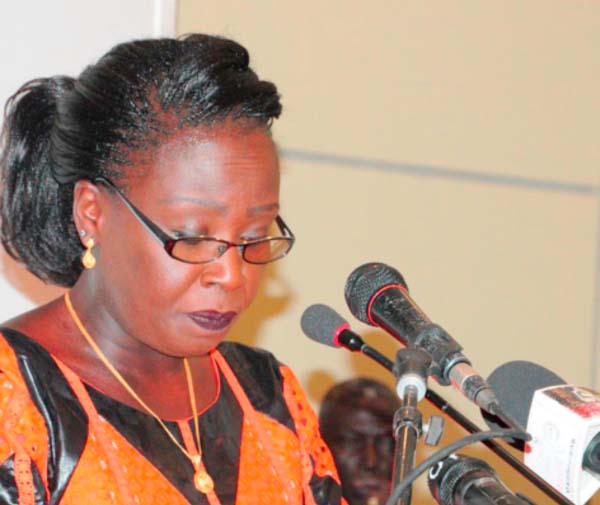
The
Gambia government has launched a US$11.4 million project, funded by the
European Union, to improve food security and reduce stunting growth among
children in North Bank, Lower River, Central River and Upper River regions.
The
30-month project, to be jointly implemented by the Food and Agricultural
Organisation (FAO), World Food Programme (WFP) and the United Nations
Children’s Fund (UNICEF), was launched at Kairaba Beach Hotel on Thursday.
It
would be implemented in close partnership with the Department of Agriculture
(and its specialised units), the National Nutrition Agency, the Ministry of
Health, the National Disaster Management Agency, the Gambia Red Cross Society,
Farmer Based Organisations, and the Women’s Health, Productivity and the
Environment NGO (BAFROW).
Delivering
a joint statement by FAO, UNICEF and WFP, Perpetua Katepa Kalala said poverty
eradication is the greatest challenge facing the world today, adding that
sustainable development cannot be achieved unless hunger and malnutrition are
eradicated.
The
FAO Gambia representative said the proportion of the number of people living
below the poverty line in The Gambia is 48 per cent which means one out of two
people living in the country lives below acceptable level of poverty line.
Dr
Kalala said due to the population growth, the number of people in the poverty
line increase about 140,000 people with an average of 3 per cent increase in
the population every year.
She
said in some regions, seven out of every ten people are below the poverty line
and that is high, and most of such people live on agriculture, fishing and
natural resource exploitation.
The
EU ambassador to The Gambia, Attila Lajos, said the US$11.4 million project
aims to provide product support to rural communities that are vulnerable to
food and nutrition insecurity.
The
ultimate aim of the project, the ambassador said, is to contribute to the
reduction of stunting growth and supporting households in agricultural
production, food diversification and malnutrition.
The
Minister of Health and Social Welfare, Saffie Lowe-Ceesay, said food and
nutrition security is about access to sufficient and affordable nutritious
food.
She
pointed out that under nutrition is a major public health problem in The Gambia
and it is exacerbated by factors such as the poverty level, food insecurity,
poor sanitation and hygiene, and increase disease burden.
The
Gambia Demographic and Health Survey, 2013 shows that 24.5 per cent of children
under 5 years suffers from stunted growth.
“Poor
sanitary and hygienic conditions shuffled with inadequate access to safe water
are among the major factors contributing to the high level of malnutrition of
children among under 5 years in The Gambia,” the minister said.



